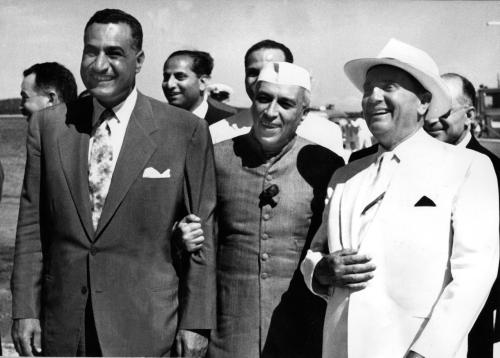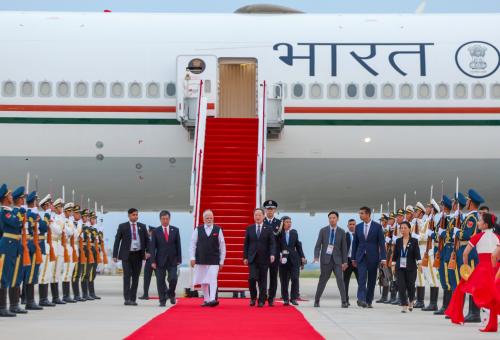The Bush administration is off to a rough start in its relations with Russia, and much of the reason is its insistence that Russia cease selling military technology to Iran.
The Bush team is right to worry about Russian arms sales to Iran, a country that still supports terrorism, refuses to recognize Israel’s right to exist, and sits astride the critical Persian Gulf and Strait of Hormuz.
But the administration is wrong to pick up where the Clinton administration left off and treat all such sales equally.
And it is also wrong to think that Russian President Vladimir Putin would consider ending all of his country’s arms sales to Tehran. If the Bush administration is to avoid a worsening relationship with Russia and make progress in constraining Russia’s dangerous arms trade with Iran, it needs a more nuanced policy. Zero tolerance will not work.
Weapons technologies represent nearly half of Russia’s exports of machinery. There is no way that economically beleaguered Russia will give up a large chunk of such a valued source of hard currency, which presently accounts for about $3 billion a year. Indeed, Mr. Putin recently declared a policy of strengthening and centralizing Russia’s arms industry.
The United States can live with perhaps 90 percent of Russian arms sales. Therefore, it should focus dialogue on those 10 percent of greatest concern.
Like any other country, especially one adjacent to Saddam Hussein’s Iraq, Iran has every right to a viable self-defense force, including tanks, other armored vehicles, artillery, fighters, helicopters, surface-to-air missiles and surface ships. Such Iranian military assets should not unduly concern the United States because U.S. forces could counter them in the event of war.
Instead, Washington should save its breath for those weapons that Iran could use in small numbers to cause severe loss of life or political and economic disruption in the region. These include ballistic missiles, anti-ship and land-attack cruise missiles, advanced sea mines and submarines.
Such weapons could sink oil tankers or even U.S. Navy ships and could terrorize populations in places like Bahrain, Kuwait, Saudi Arabia and Israel.
Washington also has reasonable grounds for worrying about Moscow’s nuclear trade with Iran. Russia is unlikely to suspend all such trade—most of which is permitted under international law, since Iran’s nuclear reactors are under international safeguards and monitoring.
But the right U.S.-Russian dialogue may convince Moscow to forgo sales of technologies like uranium enrichment devices that could help Iran build a “basement bomb.”
The bad news in Mr. Putin’s recent decision to reinvigorate Russia’s arms industry is that Washington has even less hope of stopping exports to Iran. But the good news is that Mr. Putin’s centralization of defense industrial policy should permit him to rein in individual firms whose exports would harm the Russian national interest.
Rather than asking for the moon, the Bush administration should work to convince Moscow that certain arms sales to Iran are not to Russia’s long-term advantage, either.
The Brookings Institution is committed to quality, independence, and impact.
We are supported by a diverse array of funders. In line with our values and policies, each Brookings publication represents the sole views of its author(s).



Commentary
Op-edBush Administration Must Ease Up on Russia
May 8, 2001